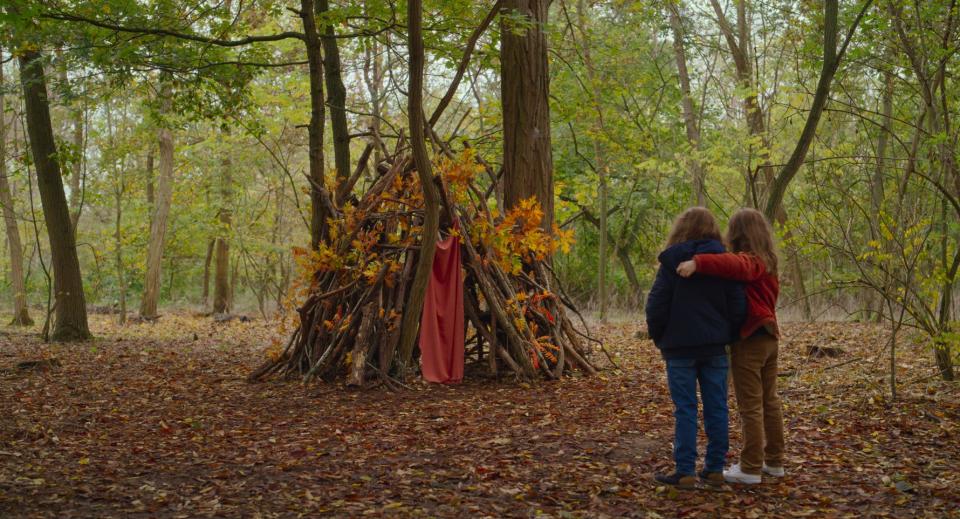Another One Bites the Dust: What the Closing of the Landmark in Los Angeles Means

IndieWire has confirmed the Landmark Theatres chain will vacate its most important location with the end of its lease May 31. It has been a key west side venue for awards-season screenings, Q&As, and tastemaker events for specialized films.
Landmark said it was unable to come to terms with the landlord on an extension of its lease. Located inside what used to be the Westwood Pavilion shopping mall, the retail that once thrived is gone. Adjacent space, now occupied by Google, is being renovated into a corporate campus. The Landmark space is expected to become an attractive target — if not for Google, then for retail, residential, or office space. Industry sources indicate no likelihood that another exhibitor will step in to replace its occupancy and programming.
More from IndieWire
Since reopening about a year ago, The Landmark struggled with a significant drop in box office — the same problem facing many theaters with older audiences. It’s also faced a declining number of platform releases, with the top specialized films that have worked — A24’s recent “Everything Everywhere All at Once,” for example — making only brief platform runs. That means when the titles expanded, theaters like the Landmark no longer enjoyed the clearance (AKA the lack of competing theaters) it once had.
This Friday, Landmark films include “Happening,” “Vortex,” “Petite Maman,” and “Operation Mincemeat,” along with crossover titles like “The Northman” and “The Unbearable Weight of Massive Talent.” Like nearly all theaters nationwide, they also have “Doctor Strange in the Multiverse of Madness.” Upcoming bookings include “Downton Abbey: A New Era” and “Top Gun: Maverick.”

Berlinale
Sources suggest an array of reasons for why the landlord did not renew the lease, including some related to unresolved concerns over non-payment of rent over the past two years. (Landmark owner the Cohen Organization did not respond to IndieWire inquiries at deadline.) In 2020, Landmark Theatres vacated its eight-plex cinema 57 West property in Manhattan. A year later, developer The Durst Organization sued for $48 million with claims that Cohen owed more than $1 million in back rent and that the company removed 700 plush seats and other items from the interior “under the cover of darkness.”
Landmark grosses were in decline even before COVID-19. In 2019, its box office came to $6.5 million, down from $11.5 million in 2018. Through this weekend, the theater grossed $1.1 million in 2022. Still, it remained the most important location for Landmark chain, which enjoyed decades as the leading specialized circuit in the U.S. It currently has 35 locations with 200 screens in 22 markets. Owner Charles Cohen also owns the Curzon circuit in Britain, a similar exhibitor.
The end of Landmark Los Angeles comes 13 months after Pacific Theaters announced its closure. That included nearly all of its Arclight locations; many were reopened by other operators, led by AMC. Arclight Hollywood and its historic Cinerama Dome remain closed. Along with the Landmark, it spent years as the key location for platform releases, awards titles, and specialized films.
For the top specialized titles from key companies like Focus and A24, viable alternatives exist. The AMC Grove has already served as a proxy for Arclight Hollywood. The AMC Century City on the west side remains very much in demand for both studio films and some high-profile specialized titles. The Laemmle Royal’s three screens are particularly a credible alternative for subtitled and some documentary films. Landmark still operates two single screen theaters in the area — the Nuart, shortly to undergo renovation, and the Westwood.
However, the Landmark was arguably the next best thing to the Arclight and it became a go-to on the awards circuit for special screenings, Academy member events, fiimmaker appearances, and other key happenings. That will be tricky to replicate elsewhere in Los Angeles.
All this is disconcerting for the future of specialized exhibition, a sector heavily based on older audiences and much slower to recover. Meanwhile competition from the all-pervasive home alternatives, with windows often much shorter than what studio films abide by, will continue to grow.
Best of IndieWire
Sign up for Indiewire's Newsletter. For the latest news, follow us on Facebook, Twitter, and Instagram.